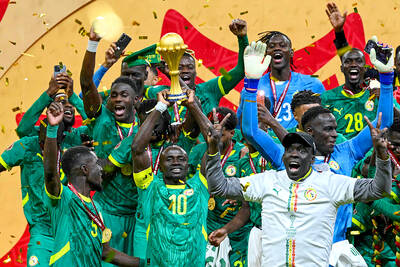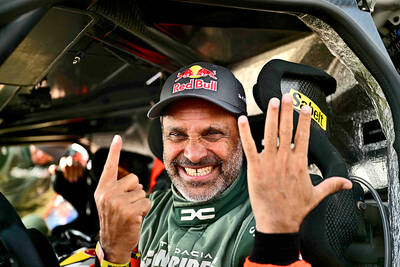David Beckham has finally achieved his goal of bringing Major League Soccer (MSL) to Miami, but the prospect of a stadium without parking that drives up housing costs in a low-income neighborhood is no hit with residents.
The former England captain and glitzy star of storied Champions League teams was on Monday formally awarded an MLS franchise, but key details remain up in the air, such as its name and logo and when it will debut.
For the 25,000-stadium, the investor group led by Beckham has acquired land in an area called Overtown, a working-class district between downtown and Little Havana.
They still need to buy one more piece of land, but for now the deal is held up in court by a lawsuit. The investors are confident they will prevail.
“Our 24th team now is in Miami. The stadium is in the Overtown site,” MLS commissioner Don Garber said.
One problem is that Miami is already choked with traffic and the stadium will not have its own parking lots.
And people in the neighborhood fear housing costs that are already rising will force them to move away as they keep going up.
“We are largely overwhelmed by the larger forces in the community that are out there. Our voices are not being heard sufficiently,” said Ernest Martin, a member of the Miami River Commission, an association of people living near the waterway.
Martin was especially critical of the lack of parking.
However, Miami-Dade County Mayor Carlos Gimenez said that although the stadium itself would not have on-site parking, there are plenty of big lots two to three blocks from the planned arena.
He also pointed to public transport, but people in Miami love their cars.
The problem of rising housing costs comes with gentrification. Overtown is a black-majority neighborhood of about 13,000 people, and 24 percent of the residents earn less than US$10,000 a year, well below the poverty level.
“This has been a low-income housing area for many years,” Martin told reporters at his home along the river.
“Ultimately the big increase in rent for the area will cause Overtown to become a more select area for residential users,” he added.
The barren lot of land where the stadium is supposed to go up is surrounded by a fence on which neighbors have hung a sign that reads: “No to the stadium.”
Nearby are modest apartment buildings and a few shops. At a corner liquor store, the cashier tends to customers from behind bullet proof glass. The storefront is protected by iron bars.
Douglas Romero, a 27-year-old resident of Overtown, said that this year his rent has already gone from US$1,050 a month to US$1,200.
“I’m a little worried, you know,” Romero said, holding his four-year-old son. “The prices of rent have been going up lately, starting in January. The only thing would be, if prices go up, you know, everybody looks to move. Everybody looks for somewhere else.”
It is not even the city’s first tryst with MLS.
Its first team, Miami Fusion, made their debut in 1998, but only played for four seasons before being cut from the league after the 2001 campaign amid low ticket sales and the lowest revenues of any team in the competition.
Soccer in the US is nowhere near as popular as baseball, basketball or American football, but Beckham and his fellow investors are counting on the cultural diversity of Miami — with its large Hispanic and Caribbean populations — to attract fans.
And not all in the neighborhood are against the newcomers.
“Him bringing the stadium here... it’s wonderful,” said Cedric Dixon, 52. “It’s excitement. It’s changing Miami.”
Meanwhile, landscaper Williams Charlie is skeptical that the new stadium can bring jobs, but said “we need a soccer team” nonetheless.
“Beckham knows what he’s doing. I’ll go right to the game — if they don’t move us out,” Charlie said.
One sign of how deeply opposed some are is the emergence of a Facebook group against the stadium which publishes scary videos of soccer-related violence as a way of warning against the dangers of hooligans.
“It’s not a done deal!” is the slogan of the Overtown Spring Garden Community Collective.
This is true: the proposed sale of the last piece of land needed is being held up by a millionaire named Bruce Matheson, who says that the county had no right to cede the first lot without opening it up to bidding.
He lost his first battle in court, but has lodged an appeal.
Gimenez remains bullish.
“We are very confident that we are going to win the lawsuit,” he said.

MARRED FINAL: As most of Senegalese players walked off the pitch after a controversial decision, some supporters threw objects and attempted to get onto the pitch Senegal on Sunday won the Africa Cup of Nations (AFCON) as Pape Gueye’s extra-time winner sunk hosts Morocco 1-0 after a chaotic final that saw the eventual champions storm off the pitch late in the game. Brahim Diaz could have won the trophy for Morocco with a controversial spot-kick in the 24th minute of added time at the end of normal time as ugly scenes broke out in the stands. However, Senegal goalkeeper Edouard Mendy easily saved the weak attempted “Panenka” chip by the Real Madrid winger, who was clearly distracted by the long delay that followed the penalty award.

James Harden on Friday scored 31 points and came up big in overtime to help the Los Angeles Clippers erase a double-digit deficit on the way to a 121-117 NBA victory over the Toronto Raptors. Harden scored 16 points in the fourth quarter and overtime as the Clippers pushed their wining steak to five games despite the absence of star Kawhi Leonard with a sprained right ankle. The Clippers trailed by 11 entering the fourth quarter, but Harden drilled a pair of free-throws with 1:24 left in regulation to tie it and after misses from both teams, they went to

Tobias Harris on Monday scored 25 points as the Detroit Pistons held off the Boston Celtics to score a 104-103 victory in their top-of-the-table Eastern Conference showdown. Harris was one of four Detroit players to finish in double figures, with Jalen Duren adding 18 points and point guard Cade Cunningham scoring 16 points with 14 assists. The win sees Detroit extend their lead at the top of the Eastern Conference to 31-10, 5.5 games ahead of second-placed Boston, who fell to 26-16 with the defeat. Jaylen Brown led the Celtics scoring with 32 points and almost snatched victory in the

Qatar’s Nasser al-Attiyah on Saturday secured his sixth Dakar Rally car title in Saudi Arabia with Luciano Benavides scraping home by two seconds to claim the motorbike title. “We’ve worked very hard since last year. I might not be showing much emotion yet, but it’s there, deep down. We are so happy to win,” al-Attiyah said at the finish. Al-Attiyah, at the wheel of a Dacia, only had to avoid a final day slip-up to top the podium after bringing his career tally of stage wins to 50 on Friday. The 55-year-old, who took clay pigeon shooting bronze at the